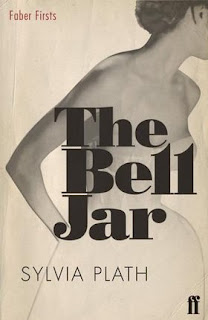On Books and Children
In our current world, children are exposed to more horror than ever before, and in a way that is seriously damaging their empathy.
I see this horror, and the effects it has on children, more and more every day. I've taught first graders, fifth graders, and everyone in-between. Children of all ages are playing violent video games, owning smartphones, and watching TV during all hours of the night. They are being exposed to upsetting, horrific, and mature content at all hours of the day. Maybe their parents don't realize that giving your child a smartphone is the same as giving them unlimited, unmonitored access to the internet. Maybe they think Grand Theft Auto is just a car-racing game. Maybe they don't realize what kind of shows air after 11pm.
The result of this exposure? Children who are quick to anger, who resort to violence to solve their problems, who insult others, laugh at others, who struggle to understand right from wrong.
I am not a parent, and I won't judge parents, because I don't think any parent would intentionally expose their children to this kind of desensitized horror. I think this generation is unique, because technology is new and most parents don't realize it's potential for danger.
However, this is a growing problem. Kids are being exposed to these difficult subjects in a way that is inherently inhumane. There is nothing human about Grand Theft Auto, about Adult Swim, about LiveLeak.com.
Now, before you start to roll your eyes at my sanctimonious rhetoric, let me first say that I think these things are perfectly fine for adults. Adults have lived and learned and experienced things enough to separate empathy and morals from horror. But kids haven't had that chance. Children's brains are still developing, and exposure to these things without any explanation or guidance can really fuck with their heads.
Now, let me get really get into my point here. Which is that, I don't necessarily think that kids shouldn't be exposed to upsetting things. In fact, I think quite the opposite. Being confronted with horror is a part of growing up. But we're missing a huge component of this confrontation, and that is empathy. There needs to be a human component to this exposure in order to help children develop a moral compass, to help them determine right from wrong, and to help them develop a human understanding.
This is all within reason, mind you. Some content, children are just not ready to know about. I don't think children should be exposed to a game that rewards you for robbing and killing prostitutes, even if it did with some sort of "empathy" (but just to be clear- it doesn't come with even the slightest inkling of it), or a show that degrades women and includes jokes that makes fun of certain groups of people. Adults can separate the comedy from reality, many kids cannot.
But loss, betrayal, death, racism, and failure? Those are actual horrors many children deal with. Some kids deal with it more than many adults I know. However, more and more children are not prepared to handle it.
What's one big way we can fix this?
Literature.
Literature one of the best ways to help children develop empathy. Literature confronts us with horror in a human way. When you read about upsetting things in books, it's human and it's personal. It's crawling into someone else's mind and staying for a while. It's living someone else's life. It's seeing things from their eyes. It's understanding their plight, and feeling their horror. So when you meet the real-life embodiment of a character from a book, you understand them a little better. You empathize with them.
Literature can teach children empathy, selflessness, understanding, and so much more. Honestly, it can even teach adults those things. I will never experience racism, segregation, or prejudice. But I've read I Know Why the Caged Bird Sings. And by no means am I saying that reading that book is the same as the human experience, and that I now know exactly what it's like to be something that I'm not. But, it stops me from discrediting that human experience. It prevents me from pretending like it does not exist at all. It forces me into a horror that I might otherwise overlook, because my life will never put me in that horror. It gives me empathy for a human experience that needs to be heard and understood.
But more and more children these days are not being given this chance. Many barely have the attention span for a book at all. Instead, they are confronting horrors in a desensitized way, a way that is easier and more accessible than a book, that lack the empathy component that is so important. They are not being given a fair shot at developing empathy and understanding, and if we don't fix this, we are going to be confronted with a generation of people who cannot see anyone else's plight but their own.
Is literature the only answer to this problem? Of course not. But if you're looking for a place to start, start by buying a book for a child.



Comments
Post a Comment